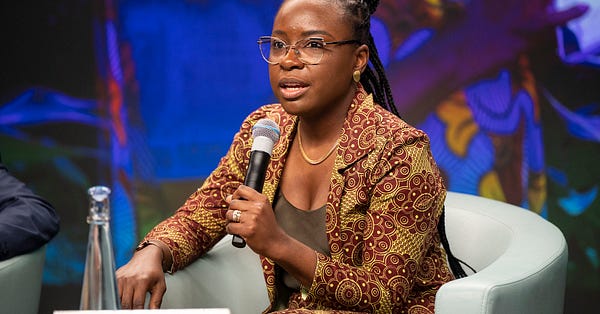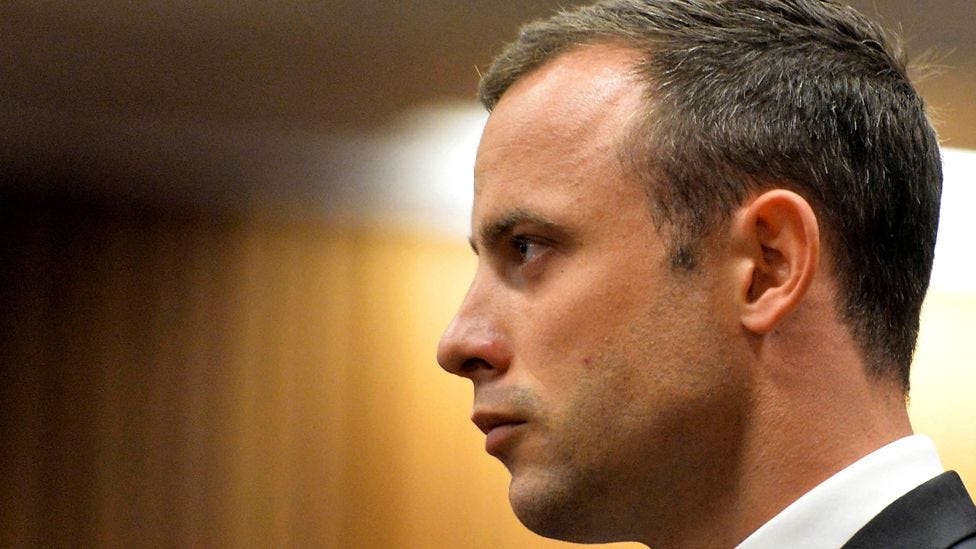🔅 Angola's Global Hunt for Missing Billions
Plus: Oscar Pistorius Not Getting Parole Anytime Soon, Burkina Faso's French Media Ban, Madagascar's Government vs the People, And much more... ☕
Photo of the day: Togo

Markets:
🔻 Nigerian SE: 54,184.34 (-0.09%)
🔺 Johannesburg SE: 76,614.96 (+0.68%)
🔺 Ghana SE: 2,761.32 (+0.56%)
🔺 Nairobi SE: 113.25 (+0.43%)
🔻 US S&P 500: 4,108.07 (-0.03%)
🔺 Shanghai Composite: 3,296.40 (+0.72%)
Global Markets: The price of oil is skyrocketing after Saudi Arabia, Iraq, and several Gulf states announced surprise production cuts. Experts are warning that higher oil prices could lead to higher inflation. BP and Shell's stocks have shot up. It's a complicated situation with lots of implications for global markets. The surprise production cut was made by members of the Opec+ group, who account for 40% of the world's crude oil output. The move is apparently a “precautionary measure” to keep oil prices above $80 a barrel. Meanwhile, the US is calling for the group to increase supplies to cool down prices and check Russian finances.
*Data accurate as of the close of markets across the continent
POLITICS
Angola's Global Hunt for Missing Billions
Angola is taking a deep dive into its finances and coming up with something big.
The government is in the process of recovering over $15 billion in assets illegally transferred abroad between 2001 and 2017, and is now considering the creation of a specialised fund to manage these assets.
Where did all this money go?
The money was allegedly taken by members of the dos Santos family (Eduardo dos Santos was the president of Angola from 1979 to 2017), former government officials, and ex-managers of state-owned companies. An estimated $150 billion remains unaccounted for, and the assets are scattered around many countries across the world.
So how is Angola getting its money back?
In an effort to get the money back, Angola has requested cooperation from several countries, including the Netherlands, Luxembourg, the United Kingdom, Singapore, and others.
The challenge is that retrieving billions of dollars from these countries’ commercial banks could have an adverse effect on their finances, creating problems for Angola.
To try and minimise the negative impact, the government is proposing asset-sharing agreements, which would enable part of the proceeds to be returned to the initiating country. In other words, Angola is hoping it can get some of its stolen assets back without causing too much disruption to other countries.
What's the plan for the recovered money?
The recovered money is to be combined into a fund which could target real estate and other investment opportunities.
It's a long-term plan for Angola, but with over $15 billion already recovered, it looks like the government is on a good track to get its money back.


Share Baobab with friends and colleagues for free daily updates on African business, money, and current affairs.
OTHER HEADLINES
Across the Continent
🇿🇦 Oscar Pistorius Not Getting Parole Anytime Soon | Oscar Pistorius, the former Paralympian serving 13 years for the murder of his girlfriend Reeva Steenkamp, was denied parole this week—and for good reason: It turns out that he hadn’t even served enough time to qualify for early release. The parole board admitted their mistake after receiving a letter from the top appeals court explaining that Pistorius needed to spend another year and a half in prison before he could be considered for parole. It was an emotional day for the Steenkamp family, who welcomed the news that Pistorius won’t be released yet. “Today is not a cause for celebration,” they said. Pistorius had expressed his deep remorse for killing his girlfriend, but still maintained that he shot her by mistake, believing she was a robber. The Blade Runner’s trial attracted huge global attention and it looks like he won’t be out of prison until at least August 2024.
🇧🇫 Burkina Faso's French Media Ban | The Paris-Ouagadougou relationship is about as strained as a guitar string these days. On Sunday, two French journalists were expelled from Burkina Faso after the military didn’t take kindly to their reporting. Agnes Faivre and Sophie Douce, from Le Monde and Liberation, were questioned by the military and then unceremoniously told to pack their bags. The French Foreign Ministry has yet to comment, but Le Monde director Jérôme Fenoglio called it “a new major setback in the freedom to inform.” The news comes after the Burkinabe government took issue with Liberation’s investigation into children and adolescents allegedly being killed in a military barracks. Burkina Faso has also ordered French troops to withdraw from the country and suspended broadcasts by France's RFI radio and television channel France 24. It’s all part of the anti-French sentiment spurred by authorities’ failure to restore security to the region.


🇲🇬 Madagascar's Government vs the People | With a presidential election around the corner, Madagascar's government, led by President Andry Rajoelina, is trying to crack down on protests and dissenters. The Minister of Interior recently announced a ban on public protests, but citizens could still express their opinions in “enclosed places.” Meanwhile, the owner of La Gazette de la Grande newspaper was arrested and charged with defamation and extortion. It's not just the ban on protests: Two opposition leaders were arrested in July after hundreds of people protested against rising living costs and deteriorating economic conditions. A few weeks later, 18 people were killed by police who opened fire on a mob angered at the kidnapping of a child with albinism. Reporters Without Borders ranked Madagascar 98th out of 180 countries in its press freedom index.
FOOD FOR THOUGHT
Proverb of the Day
“By the time a fool has learned the game, the players have dispersed.”
— Ashanti Proverb.






